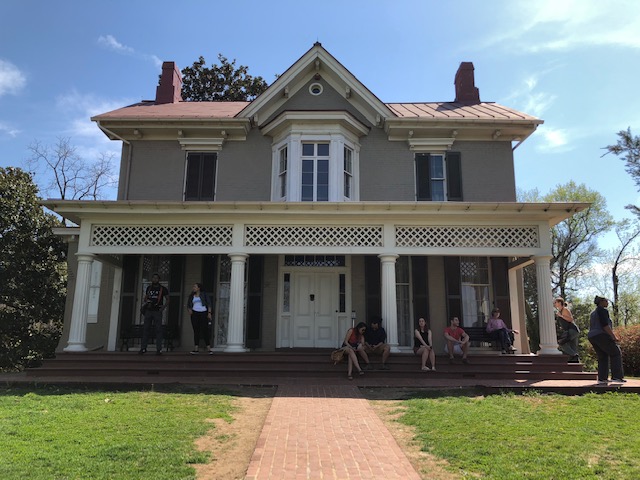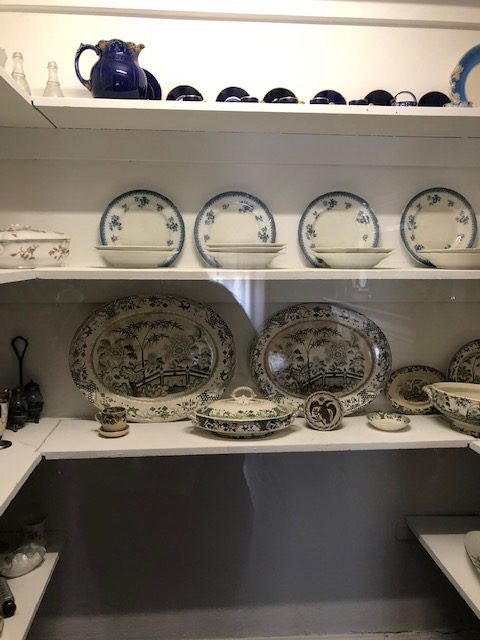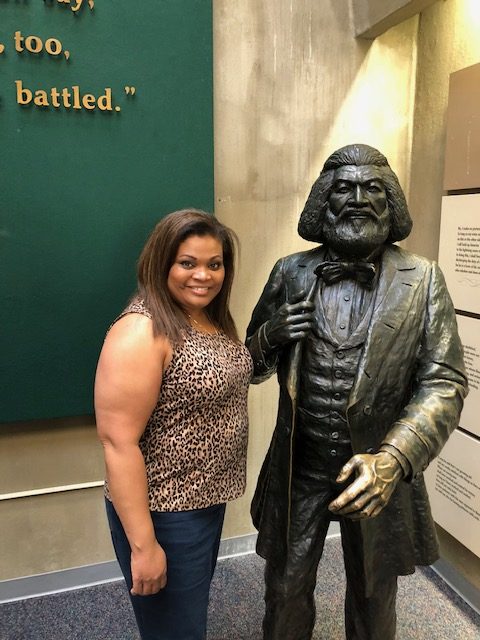Black History
A Look At Frederick Douglass’ Home Almost 100 Years After National Shrine Declaration

Tara Buckner visited the Washington, D.C. home of abolitionist and orator Frederick Douglass during a business trip to the nation’s capital in 2018. She still remembers the elegant wallpaper, the curated collection of family heirlooms, and the china.
“I believe he brought it back from the islands,” she said. “And, they have it all set up in the pantry.”

Douglass moved into the house which he called Cedar Hill in 1877. In 1922 it was declared a National Shrine, and the federal government recognized the hilltop home in the Anacostia neighborhood as a National Historic Site in 1988.
During a library reading, biographer David Blight, who won a Pulitzer for Frederick Douglass: Prophet of Freedom, shared with the audience the historical context for Douglass’ commitment to living in Washington. Blight recalled that it was the winter of 1866 and Republicans had appointed a committee to study Reconstruction, seeking ways to stabilize the formerly enslaved and ensure access to opportunity.
“In the midst of those hearings, Douglass is in Washington,” Blight said. “He didn’t live here yet. He’s not going to live here until 1872…although right at the end of the war he was trying to get to Washington, he was trying to get to the center…he was trying to get somewhere near or inside Republican politics if he could.”
According to Blight, Douglass — an admired statesman — led a delegation of 12 other Black leaders to the White House to see President Andrew Johnson. They did not have an appointment but asked for one which Johnson granted. However, Johnson was not “terribly welcoming.”
Blight stated, “But what ensued that day was probably one of the worst encounters between a group of Black leaders and an American President ever, in our history.
It was a disaster one might say.”But, Douglass was not dissuaded. When Rutherford Hayes was elected, Douglass became the marshall of the District of Columbia. It marked the first time a Black man successfully received a federal appointment requiring Senate approval.
Douglass’ ability to overcome a lifetime of discrimination is why Buckner felt compelled to visit the home which Douglass had purchased for $6,000.
She remarked, “His experience coming out of having been separated from his mother at a young age, being flogged, sneaking to learn to read and write speak to the very existence of the terrible life of slaves.”
With the growing popularity of Juneteenth, Douglass’ famous speech in 1852 questioning the relevance of the Fourth of July to the enslaved has received renewed interest. Yet, for Buckner, whose daughter was born on the holiday, the Fourth now has added meaning.

“I feel as a descendant of slaves…every day is a question so for me to have my baby on the Fourth solidifies my story as an American in this country,” she explained.
But despite what Douglass queried in his speech, Buckner in 2020 can claim the Fourth of July and “rejoice” along with many others, in part, because of his “extraordinary” accomplishments and sacrifices often first envisioned at the quiet respite he called home.

-

 Featured10 months ago
Featured10 months agoCalifornia Is the First State to Create A Public Alert for Missing Black Youth
-

 Featured10 months ago
Featured10 months agoAfrican American Leaders Stay the Course Amid Calls for President Biden To Bow Out of Race
-

 Featured10 months ago
Featured10 months agoThe Debate Fallout Lands on Both Candidates
-

 Featured9 months ago
Featured9 months agoPresident Joe Biden Decides to Withdraw from the Presidential Race
-

 Featured9 months ago
Featured9 months agoIn One of His Final Speeches as President, Biden Says It’s Time for ‘Fresh Voices’
-

 Featured10 months ago
Featured10 months agoPresident Joe Biden Describes Shooting of Donald Trump As ‘Sick’

